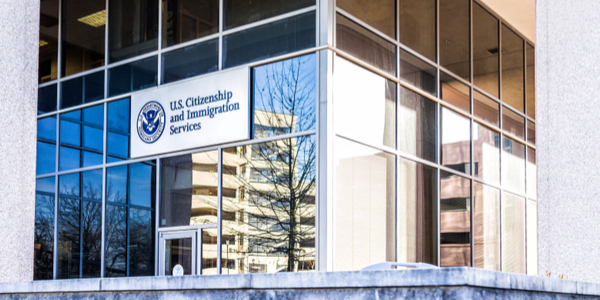Once again, the USCIS is flexing its administrative muscle via a new memorandum that broadens the discretion of officers reviewing H1B visa petitions. That may sound innocuous, but this rule change goes right to the heart of the petition review process and will certainly result in more denials.
The H1B Review Process
If an H1B applicant successfully navigates the annual lottery, they may think that was the biggest hurdle and they are now on their way to a job in the US. However, even if a petition is selected in the lottery, the USCIS will carefully review the petition and supporting documents to make sure it meets all of the criteria. This can take up to six months in some cases while the applicant and sponsor wait to hear the result.
Requests for Evidence
A core part of this process has been the Request for Evidence (RFE), which as it sounds is a request from the USCIS that the petitioner supply more information, clarification or documentation on certain items. Previously, officers were required to issue RFEs if information was missing or incomplete but starting September 11, 2018 that is all changing, and officers will be able to issue a flat denial based on the original petition.
RFEs No Longer Required Prior to a Denial of the Petition
The new rule is designed to give “full discretion to immigration officers to deny incomplete and ineligible petitions”, which means they are no longer required to issue an RFE if the petition is missing information or is inaccurate. They can instead, deny the petition right away without giving the applicant an opportunity to amend the mistake or explain their situation.
This may be the most stunning rule change to date in the H1B program since it virtually eliminates any opportunity to provide follow up information and documents. In addition, the USCIS officer does not even have to issue a Notice of Intent to Deny, and the applicant will simply receive a rejection notice with no further review possible.
Denials Now for Lack of “Sufficient Initial Evidence”
To put it simply, this new rule means that petitions must be 100% accurate and complete with all supporting documents when submitted. If anything is missing or wrong, it can be rejected right away.
Although the rule is new, possible examples of grounds for denial could include:
- Incomplete job description
- Wrong address for the work location/sponsor
- Failure to provide evidence of related work experience
- Lack of required degree copies
What is the Reason Behind this New Rule?
USCIS says the new policy is not designed to penalize applicants for innocent mistakes or misunderstanding the H1B criteria. Instead they say it is “intended to discourage frivolous or substantially incomplete filings used as ‘placeholder filings’ and encourage applicants, petitioners, and requestors to be diligent in collecting and submitting required evidence”.
Nonetheless, it is likely to trip up many petitioners especially considering that currently 40% of all H1B petitions receive RFEs. Now, each one of those can be denied immediately. This is going to have an impact on the number of petitions submitted annually and seems to be an ‘end-run’ to limit the number of new approved H1B visas and extensions in the US.
It should be a boon for immigration attorneys who will have new value in putting together H1B visas, since a sponsor will not want to risk having their HR department make a mistake that could mean losing a potential, skilled worker. We will have to see how many more denials result from this new rule, and what types of mistakes are being singled out for rejections.
- August 23rd, 2018
- 0
